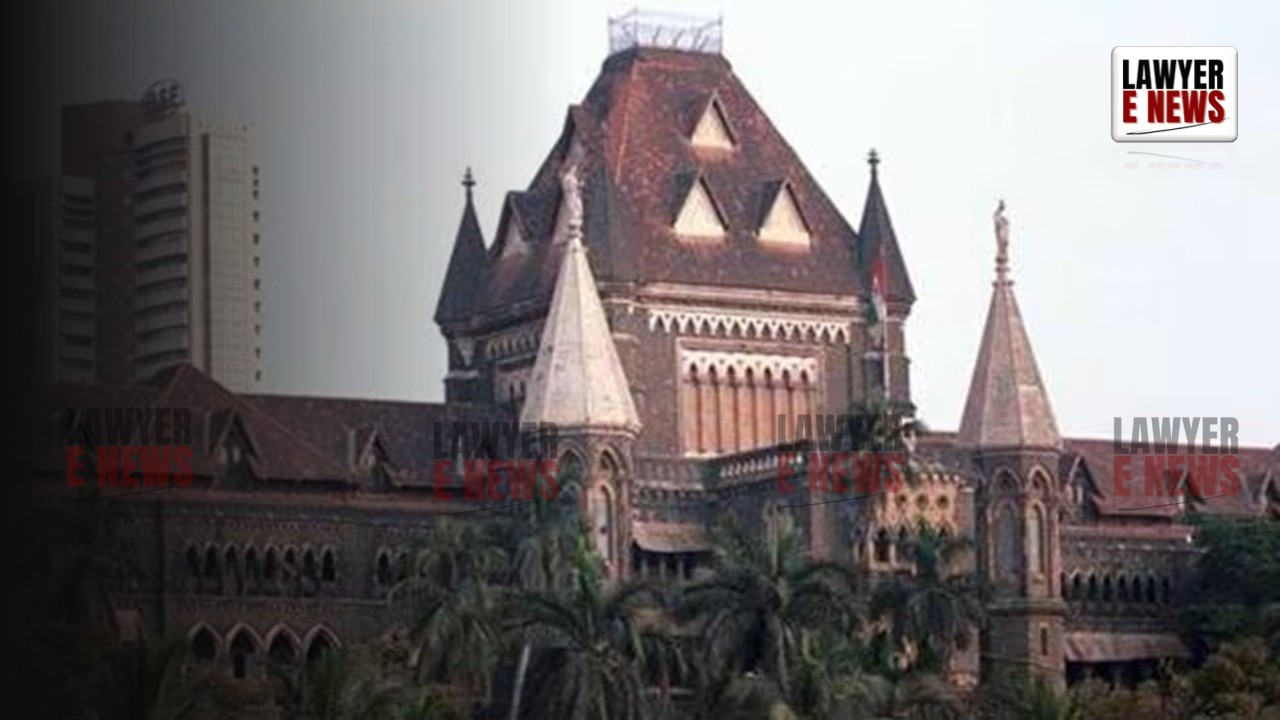-
by Admin
15 February 2026 5:01 PM



Bombay High Court, in a detailed and significant ruling, quashed criminal proceedings and money laundering allegations against Rakesh Brijlal Jain and Others under the Prevention of Money Laundering Act, 2002 (PMLA) and the Indian Penal Code, 1860 (IPC). The Court held that the dispute between the parties was contractual and civil in nature, without any criminal elements to sustain the charges under PMLA or IPC.
Justice Milind N. Jadhav, while delivering the judgment, remarked, “Labeling contractual payments as 'proceeds of crime' without any evidence of criminal activity is a gross misapplication of the PMLA.”
The judgment set aside the process issued by the Special Court under the PMLA, canceled the attachment of properties by the Enforcement Directorate (ED), and imposed exemplary costs of ₹1 lakh each on the complainant and the ED, citing abuse of the legal process.
The Court made it clear that there was no substance in the ED's claims of money laundering or criminal intent by the accused parties. Justice Jadhav noted that the payments at issue were made under a Renovation Agreement dated April 16, 2007, for additional amenities in a commercial property purchased by the complainant, G.K. Solutions Pvt. Ltd. The Court highlighted that the agreement was valid, substantially performed, and payments were made accordingly.
“It is clear from the record that there is no criminal activity at the inception of the agreement, no misrepresentation by the accused, and no deception involved. A contractual dispute over pending work does not transform into criminal liability under Section 420 of the IPC or money laundering under Section 3 of the PMLA,” the Court observed.
Addressing the ED’s argument that the payments constituted "proceeds of crime," the Court emphasized, “Proceeds of crime under Section 2(1)(u) of PMLA must originate from criminal activity linked to a scheduled offence. In the present case, the payments were made under a valid agreement that was substantially fulfilled. The ED’s labeling of such payments as proceeds of crime is wholly unsustainable.”
Territorial Jurisdiction Lacking: Court Declares Magistrate’s Order Null and Void
The Court also found significant procedural irregularities in the initiation of criminal proceedings. The complainant had initially filed complaints with the Malad Police Station and the Commissioner of Police, both of which refused to register an FIR, concluding that the matter was civil in nature. Subsequently, the complainant filed a third complaint before the Metropolitan Magistrate, Andheri, under Section 156(3) of the CrPC, alleging, for the first time, that a payment meeting had occurred at Hotel Orchid, Vile Parle, to bring the case under the jurisdiction of Vile Parle Police Station.
The Court rejected this as a fabricated claim, stating, “The allegation about a meeting at Hotel Orchid, Vile Parle, is a clear afterthought, introduced to manipulate territorial jurisdiction. The Metropolitan Magistrate, Andheri, and the Vile Parle Police Station lacked territorial jurisdiction, rendering all actions and orders passed thereafter null and void.”
The Court further noted that there was no corroborative evidence to support the claim of a meeting at Hotel Orchid. “The Vile Parle Police accepted the complainant’s allegations without verification or scrutiny. The subsequent chargesheet is a result of this flawed and jurisdictionally defective investigation,” the Court said.
Highlighting the civil nature of the dispute, the Court pointed to the pending civil suits between the parties. The complainant had already filed a suit in the City Civil Court at Dindoshi seeking recovery of ₹4.27 crores under the Renovation Agreement. “The complainant’s own actions reveal the nature of the dispute as civil. By pursuing criminal proceedings despite this, the complainant has clearly abused the process of law,” the Court held.
The Court noted that the complainant had acknowledged the work performed under the Renovation Agreement and had paid substantial installments accordingly. “If the complainant was dissatisfied with certain pending works, as alleged, the remedy lies in civil law. It is evident from the correspondence that the complainant’s principal grievance is the delay in obtaining an Occupation Certificate, which is a civil issue,” the Court said.
Justice Jadhav stated, “A mere breach of contract or delay in performance does not, ipso facto, constitute an offence of criminal breach of trust or cheating. This is an entirely civil dispute mischaracterized as a criminal case.”
The Court reserved its strongest criticism for the ED, accusing it of acting without due diligence and failing to consider evidence on record. “The ED’s claim that no work was performed under the Renovation Agreement is directly contradicted by the complainant’s own letters and payment records. The ED’s investigation displays a complete lack of application of mind,” the Court observed.
“The ED has blindly relied on the complainant’s allegations, ignoring substantial evidence of compliance with the contractual obligations. Such actions by a law enforcement agency are not only shocking but also amount to harassment,” the Court said.
Condemning the misuse of the criminal justice system, the Court imposed ₹1 lakh in costs on the complainant and ₹1 lakh on the ED, payable to the Kirtikar Law Library and the High Court Original Side Library, respectively. Justice Jadhav remarked, “A strong message must be sent to deter such abuse of process. Both the complainant and the ED have acted with malafide intent, causing undue harassment and wasting judicial resources.”
The Court directed the costs to be paid within four weeks, failing which they would be recovered as arrears of land revenue by the Collector, Mumbai.
In conclusion, the Court allowed the criminal revision application, quashed the criminal proceedings under IPC and PMLA, and canceled the attachment of two flats and a garage purchased by Rakesh Jain.
“There is no element of cheating or money laundering in this case. The dispute is contractual, and the remedy lies in civil law. The issuance of process under IPC and PMLA is a clear abuse of the legal system,” the Court stated.
The judgment has been stayed for four weeks to allow the ED to file an appeal.
Date of Decision: January 21, 2025
